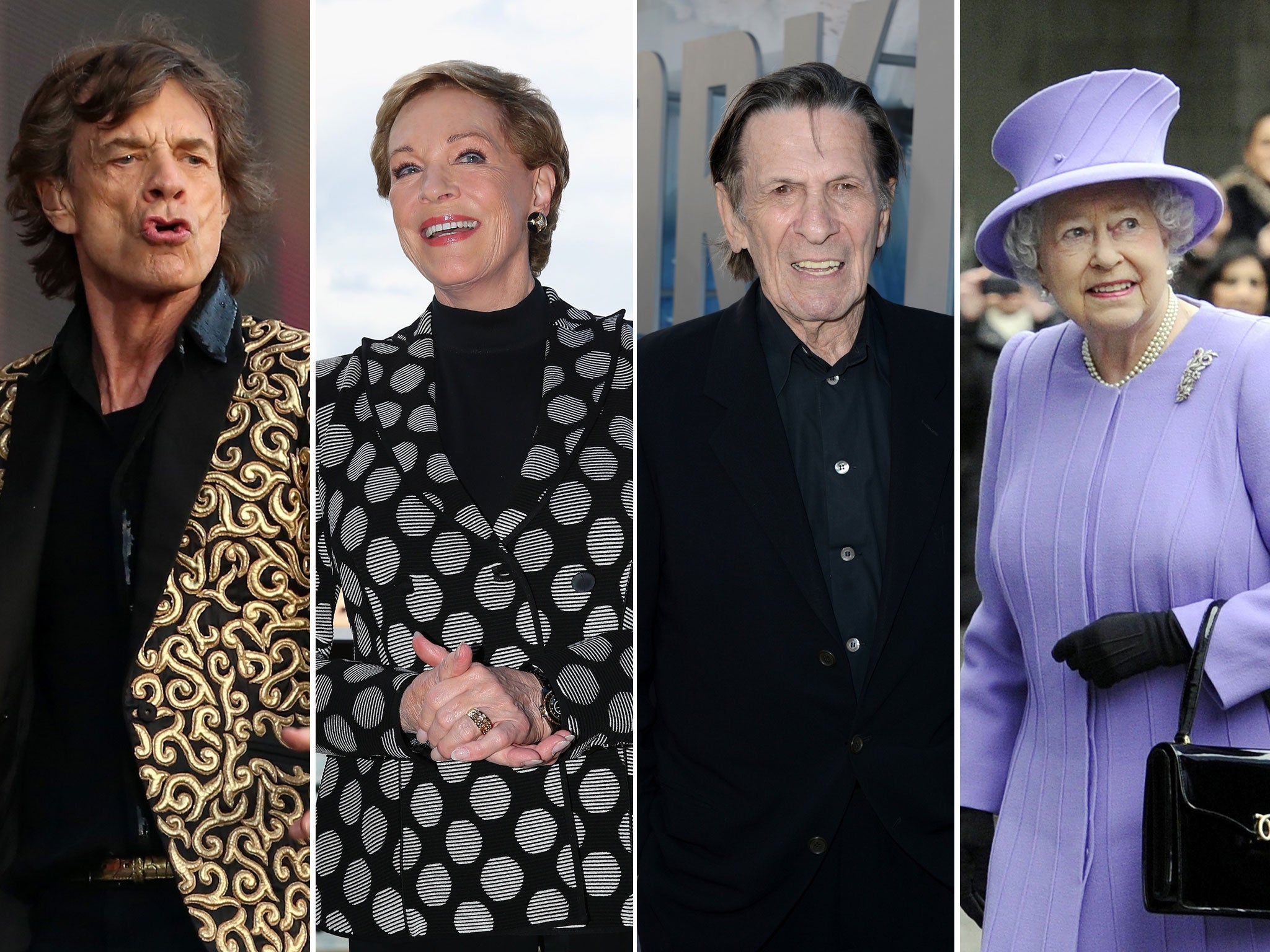Sir Mick Jagger and the great-grandparent club: why more of us will know our children's children's children
Sir Mick Jagger is about to become a member of a growing new club – great-grandparenthood. Samuel Muston finds out why more of us will know our children’s children’s children

Your support helps us to tell the story
From reproductive rights to climate change to Big Tech, The Independent is on the ground when the story is developing. Whether it's investigating the financials of Elon Musk's pro-Trump PAC or producing our latest documentary, 'The A Word', which shines a light on the American women fighting for reproductive rights, we know how important it is to parse out the facts from the messaging.
At such a critical moment in US history, we need reporters on the ground. Your donation allows us to keep sending journalists to speak to both sides of the story.
The Independent is trusted by Americans across the entire political spectrum. And unlike many other quality news outlets, we choose not to lock Americans out of our reporting and analysis with paywalls. We believe quality journalism should be available to everyone, paid for by those who can afford it.
Your support makes all the difference.In roughly five months' time Mick Jagger will join one of the most exclusive clubs in Britain. He will become, for the first time, at the age of 70, a great-grandfather. In an interview at the weekend, Jade Jagger announced that her elder daughter, Assisi, 21, will make her a grandmother at the age of 42.
Sir Mick, who is 70, is said to have responded to the news with the words, "Well done", as if she had just pulled off a particularly difficult forehand lob.
Assisi explained: "I imagine it's nice to be a great-granddad – although I'm not sure he likes the idea of getting old, or being called one."
Perhaps he doesn't much like the idea of becoming a great-grandfather, but at least Jagger can take solace in the fact that he's keeping good company.
After all, both the Queen and Duke of Edinburgh are in the G-G club, being great-grandparents to Prince George and Savannah Phillips. As is Julie Andrews, star of The Sound of Music, and Leonard Nimoy, star of Star Trek. While that other screen legend, Sidney Poitier, wrote the book on great-grandparenting, literally: it's called Life Beyond Measure: Letters to My Great-Granddaughter, and is published by Pocket Books.
It isn't just pampered royalty – real or Hollywood – who are living long enough to meet their great-grandchildren. In recent years, a demographic change has begun to affect the make-up of our families: these days, family trees are long (with more generations) but thin (with fewer children in each).
As Sam Smethers, chief executive of the charity Grandparents Plus, points out, grandparents are often no longer the oldest in their families. "Sixty-two per cent of grandparents have at least one older relative still alive [although not necessarily a parent]," she says.
It is a trend being seen across the Western world. Professor Anna Rotkirch, a sociologist specialising in comparative research on European families, suggests that "a very tentative guess would be that around 10 per cent of young children in Western societies have one great-grandparent". The reason is simple: increased longevity.
As healthcare and diet have improved over the past half-century, so the number of very old people has grown. Now, more than ever before, people are living long enough to see their children's children's children.
That said, there is a counteracting population trend: people are giving birth when they are older. Still, though, that has been a modest development in comparison.
"There are more great-grandparents alive today than ever before," says David Coleman, professor of demography at Oxford University. "The increase in life expectancy, and past population growth, will have substantially counteracted the opposite effect from later childbearing," he says.
The notion of a great-grandparent is such a recent anthropological innovation that as a role it is often ill-defined. Research by Professor Rachel Caspari, of Central Michigan University, suggests that grandparents played a key role in the evolution of mankind when the "granddaddy" generation began to appear 30,000 years ago, as they took on some foraging and childcare duties, relieving some pressure on the generation below them – a situation familiar to many of Britain's current pensioners. There exist no such theories on the role of the great-grandparent.
As Professor Rotkirch points out, the relationship between great-grandparent and grandchild is "a genetically distant one". Indeed in 2007, 57 per cent of people surveyed said they couldn't name any of their great-grandparents. At least Mick Jagger can take succour from the fact that it is unlikely that Assisi's child will forget his name any time soon.
Join our commenting forum
Join thought-provoking conversations, follow other Independent readers and see their replies
Comments